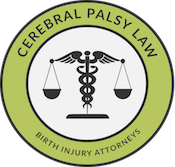What is the Manual Ability Classification System (MACS)?
The Manual Ability Classification System (MACS) measures how well children with cerebral palsy can use their hands. This system looks at how well children can use their hands in their day-to-day setting, rather than in a clinical environment or at their maximal ability level.
What Does the MACS Measure?
The MACS looks at how well children with cerebral palsy can use their hands together when manipulating objects.
What Doesn’t MACS Measure?
MACS does not measure how well each hand works on its own. It is intended for use as a general measurement of a child’s overall hand function.
Why is the MACS Scale Useful/Important?
The system tries to create a hand-specific, clinically reliable metric similar to the Gross Motor Function Classification system. This classification system is an attempt to replace the vague, broad categories of mild, moderate and severe impairment with more clear-cut parameters.
Also, the creation of a metric for hand function is especially significant due to the primacy that hand function holds over a child’s independence. The more functional a child’s hands are, the more that child is able to live independently and perform tasks without assistance, including eating, writing, dressing and engaging in play activities.
Getting Legal Help for Cerebral Palsy Cases
Cerebral palsy is often caused by birth injuries sustained during the labor and delivery process, or by medical mistakes that occur in mistreating or misdiagnosing health issues during pregnancy. Medical professionals who make these mistakes are committing medical malpractice in allowing their clients to be injured. Those who are injured deserve compensation for cover the costs of treatment and support throughout their lives. Michigan Cerebral Palsy Attorneys focus on just cerebral palsy, utilizing in-house medical staff resources and legal knowledge to build a long history of successful cases. Please contact us so that we may evaluate your case, we are available 24/7 at (888) 592-1857, live chat, or online contact form.
